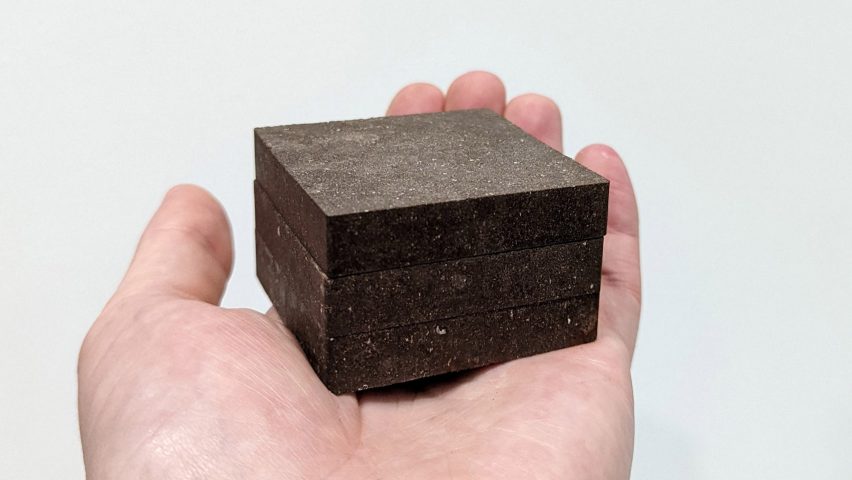
StarCrete is a concrete-like material that could be made from extraterrestrial dust
Scientists at the University of Manchester have developed a concrete-like material that could be made with extraterrestrial dust and used to build colonies on the moon and on Mars.
Named StarCrete, the conceptual construction material would be made from lunar or martian regolith and bound with salt and potato starch derived from the food of astronauts.
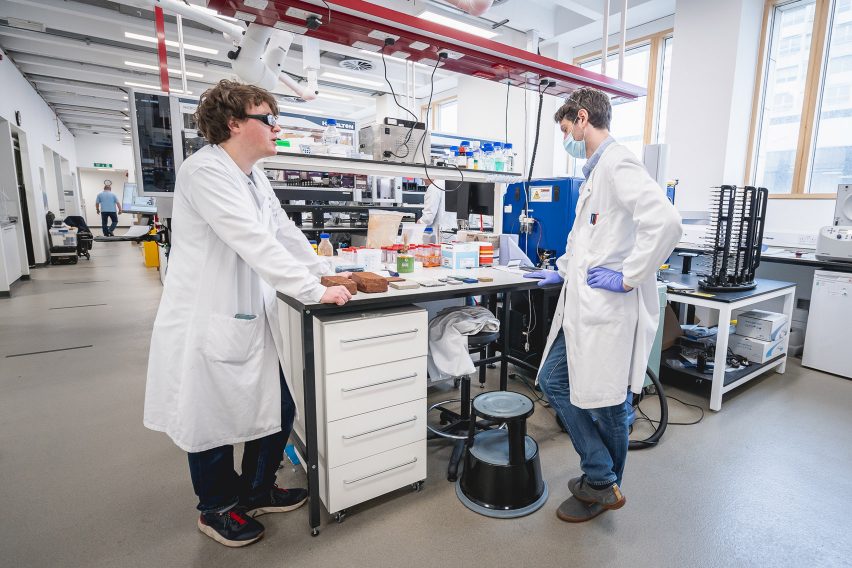
The first prototypes of the material have been created with salt, potato starch and "simulated Mars dust", which is currently formed from volcanic rock.
According to the researchers, this combination gives rise to a material "twice as strong as ordinary concrete", which makes it suitable for constructing buildings that could be used to protect humans from harsh conditions when living in outer space.
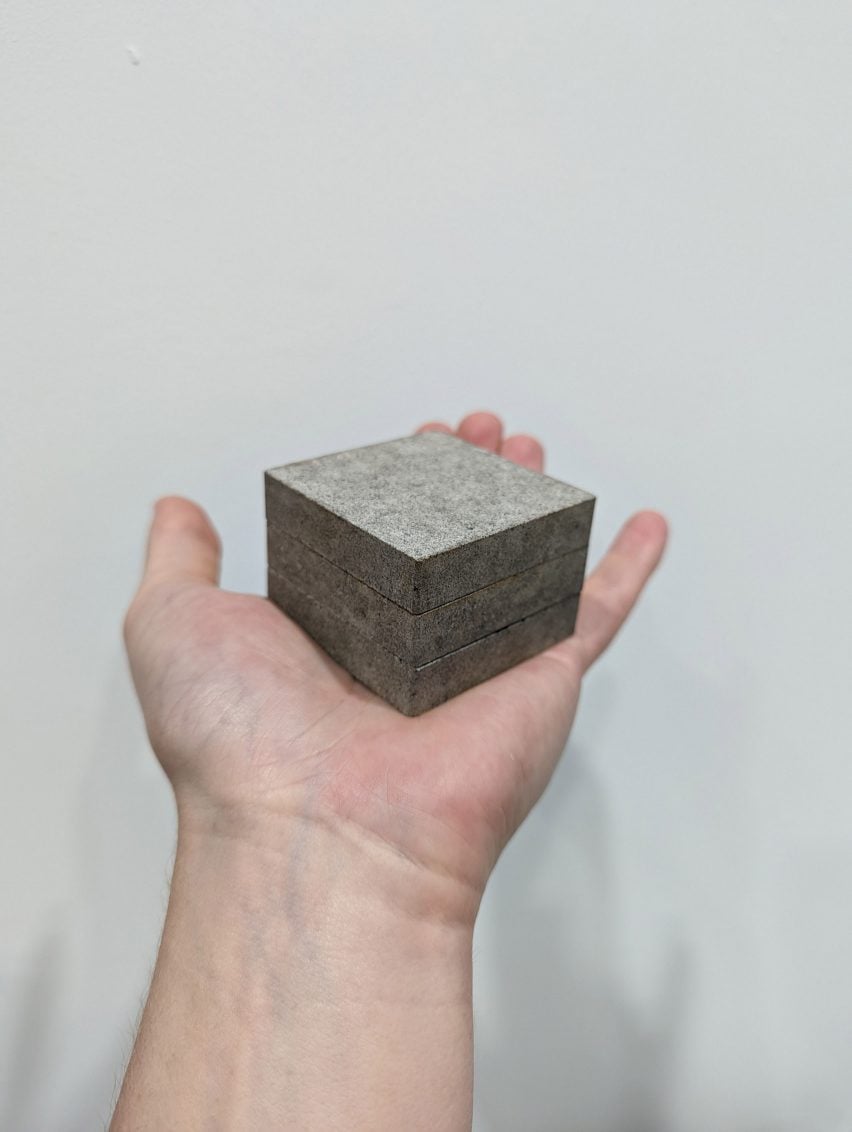
"We will need metres-thick walls and ceilings to protect future inhabitants of lunar and martian colonies from solar winds, cosmic rays and pea-sized meteorites travelling faster than bullets," University of Manchester scientist Aled Roberts told Dezeen.
"StarCrete is ideal since it is easy to make, and the only ingredients are moon or Mars dust and a small amount of salt and starch, which we know we’ll have access to anyway to feed the astronauts."
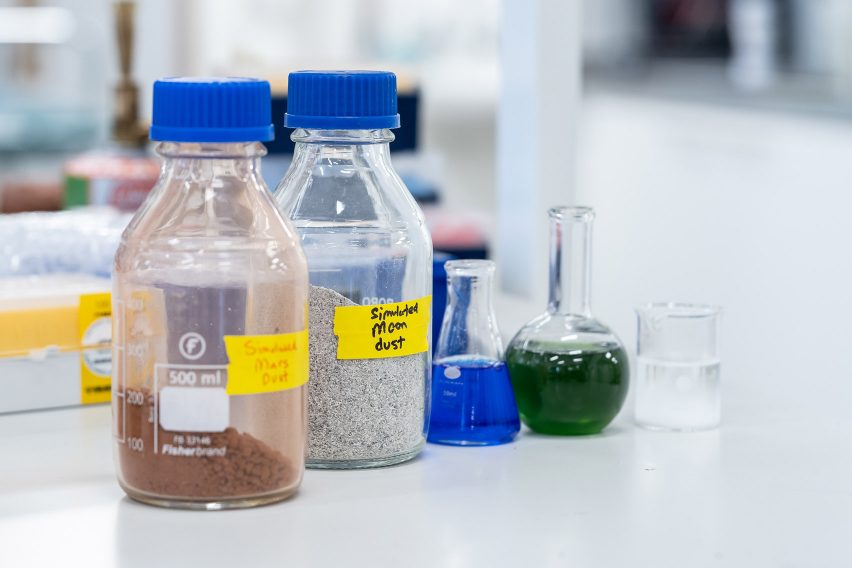
According to the StarCrete team, "building infrastructure in space is currently prohibitively expensive and difficult to achieve".
StarCrete, therefore, aims to offer an affordable and accessible construction material for use in outer space, which can be made with minimal processing equipment when compared to traditional alternatives such as concrete.
The simulated Martian dust currently used in the development of the project is acquired from a specialist company and material manufacturer called Exolith Simulants.
It is made by blasting volcanic rock to form a fine powder, making what is understood to resemble regolith – the unconsolidated materials such as dust that cover bedrock – on Mars.
The current iteration of the product is composed of approximately five per cent potato starch and 95 per cent simulated Martian soil, along with a "pinch of salt".
Tests on the prototype made with simulated Mars dust have found it to have a compressive strength of 72 megapascals, which is more than twice as strong as ordinary concrete that typically has a compressive strength of 32 megapascals, the team said. Meanwhile, a version it created with real moon dust had a strength of 91 megapascals.
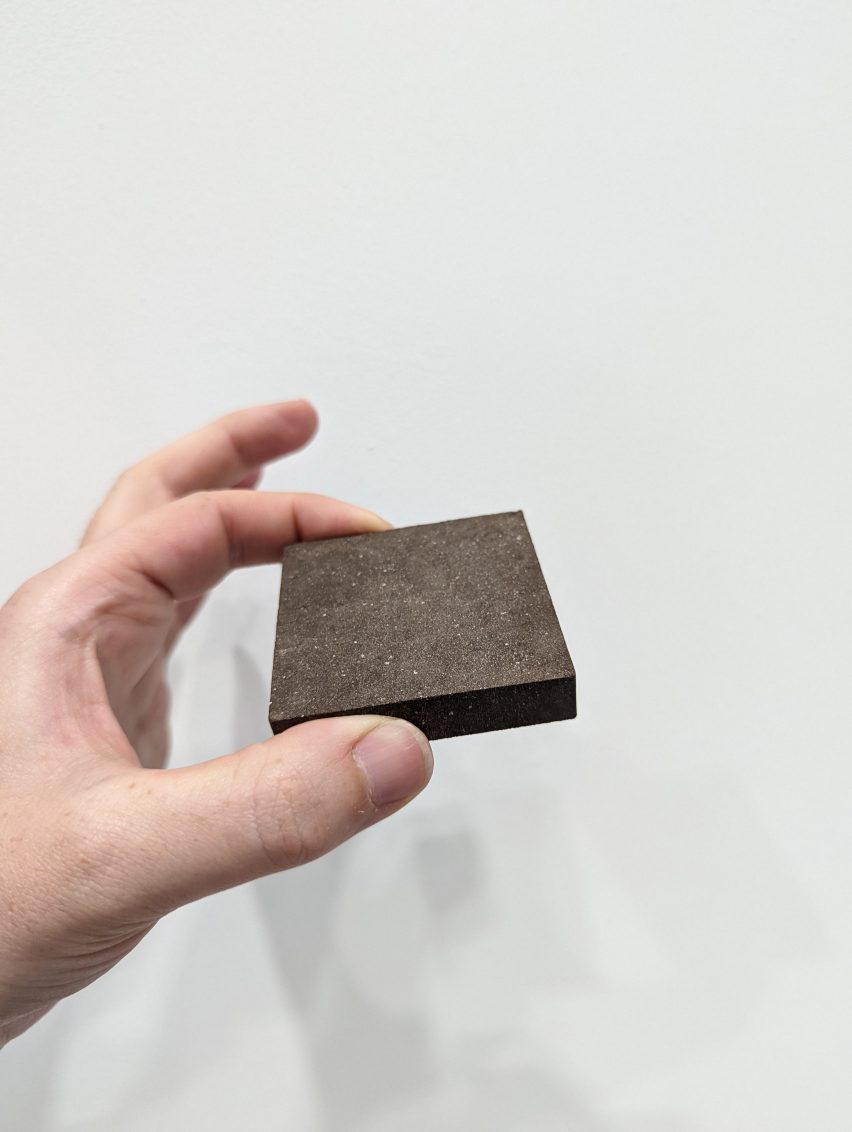
Prior to using potato starch, the scientists at the University of Manchester were previously exploring how astronauts' blood could be used as a binding agent.
The resulting material had a compressive strength of around 40 megapascals, but the use of blood made it a "less feasible" option.
"Since we will be producing starch as food for astronauts, it made sense to look at that as a binding agent rather than human blood," explained Roberts.
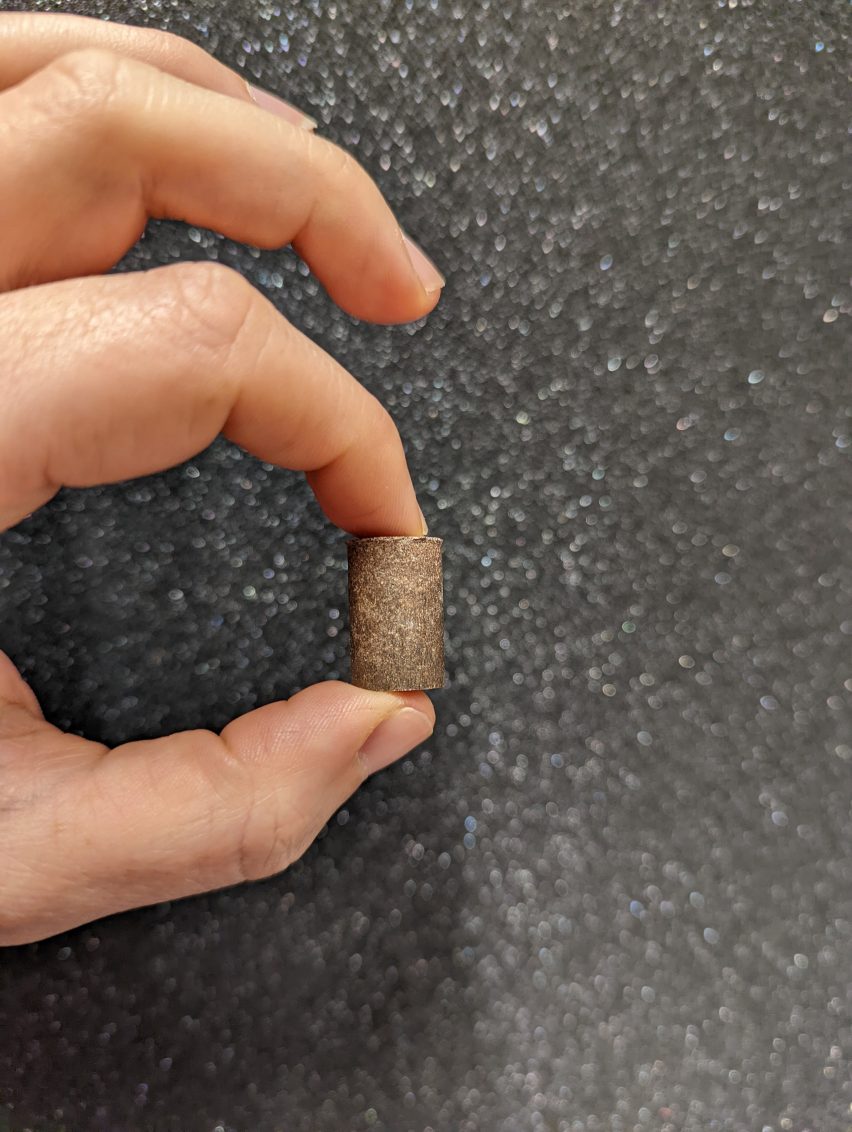
Moving forward, Roberts said a goal of the project is to also find ways to use StarCrete as an alternative to concrete for buildings on Earth.
"Concrete accounts for about eight per cent of global greenhouse gas emissions, so if we could develop a low-carbon plant-based alternative such as StarCrete it could have a huge positive impact," Roberts explained.
Another concrete-like material featured on Dezeen is Sea Stone. Developed by Newtab-22, it is composed of waste seashells salvaged from the seafood and aquaculture industries.
A team of scientists from Imperial College London developed Finite, a biodegradable construction material made from desert sand that is as strong as concrete but has half its carbon footprint.
The photography is courtesy of Aled Roberts.